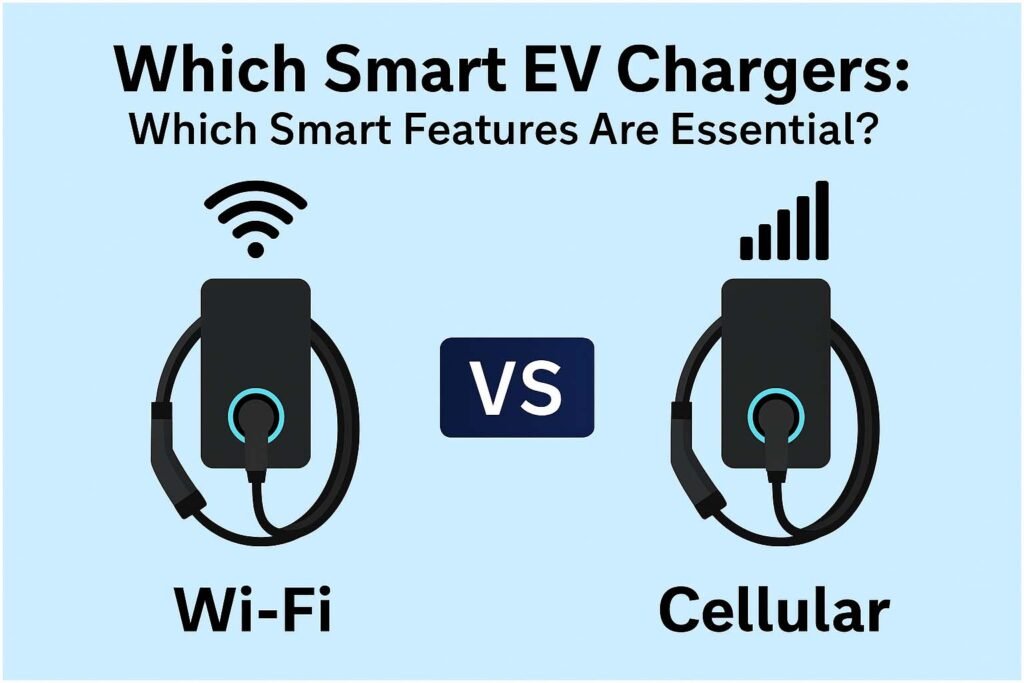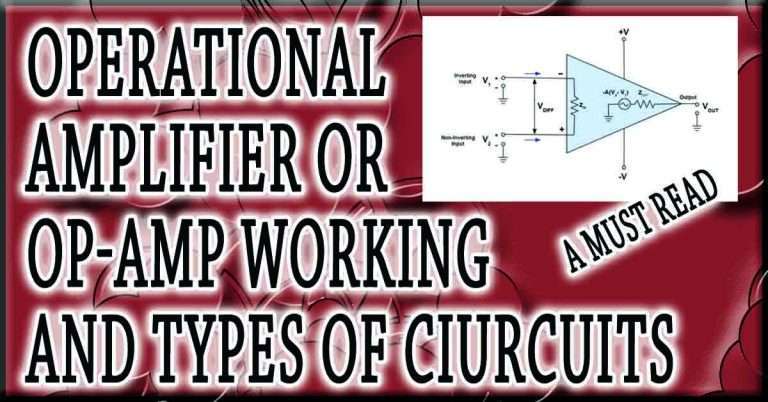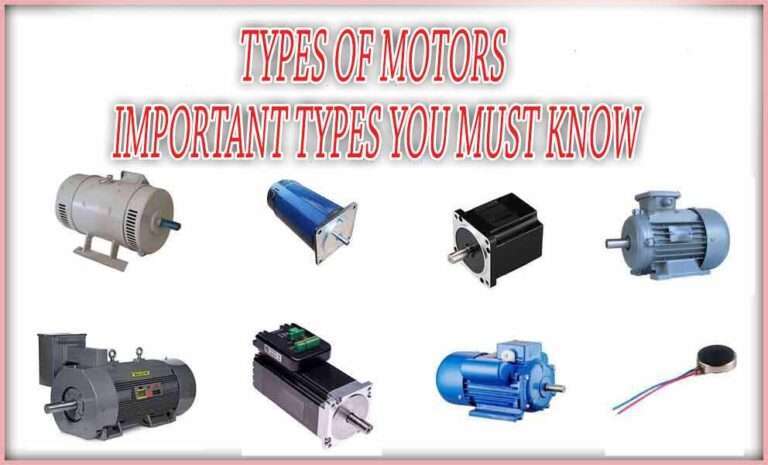Wi-Fi vs Cellular EV Chargers: Which Smart Features Are Essential?
Electric vehicle charging technology is evolving fast. Homeowners now expect more than basic charging. They want smart features, automation, remote access, and reliable performance. When choosing between Wi-Fi vs Cellular EV Chargers, buyers often struggle to understand which connection type offers the best value. Both options deliver intelligent charging capabilities, but they differ in how they connect, how they perform, and how they support long-term use.

Table of Contents
This guide explains how Wi-Fi vs cellular chargers work, what features matter most, and which option fits specific charging needs. The goal is to help you make an informed decision based on performance, reliability, cost, and smart-charging functionality.
Understanding Smart Connectivity in EV Chargers
Smart EV chargers allow you to monitor charging sessions, adjust power levels, track energy usage, and integrate with home energy systems. They also support scheduling, cost-saving modes, and real-time alerts. To enable all this, the charger must stay connected. The most common connectivity types are Wi-Fi vs cellular. Uncover insights on ev charger for hotels
Wi-Fi chargers connect to your home internet. They rely on your router to maintain a stable connection. Cellular chargers use mobile networks, just like a smartphone. They stay connected even when home Wi-Fi is weak or unavailable.
Key Differences Between Wi-Fi vs Cellular EV Chargers
The table below outlines the main differences. These points help clarify how each option performs in day-to-day use.
| Factor | Wi-Fi EV Charger | Cellular EV Charger |
|---|---|---|
| Connection Source | Home Wi-Fi network | Mobile network (4G/5G) |
| Reliability | Can drop if signal is weak | Very stable and always online |
| Setup Complexity | Requires router login and setup | Usually plug-and-play |
| Cost | No ongoing fees | May include subscription fee |
| Ideal For | Homes with strong Wi-Fi | Garages without Wi-Fi, outdoor installs |
| Firmware Updates | Depends on Wi-Fi quality | Automatic and consistent |
| Smart Features | Full smart features if signal strong | Works even in remote areas |
Understanding these distinctions helps determine which charger aligns with your installation conditions and usage habits.
Essential Smart Features for Both Charger Types
Regardless of connectivity, certain smart-charging features are considered essential today. These features improve efficiency, protect your vehicle, and help cut charging costs. Read in detail about how to reset chargepoint home charger
Remote Monitoring
Remote monitoring lets you track charging sessions from your phone. Whether the charger uses Wi-Fi or cellular, this feature offers convenience and peace of mind. You can see charging speed, energy delivered, and session progress.
Scheduled Charging
Scheduled charging is one of the top features EV owners rely on. It helps you charge during off-peak hours and save money. Wi-Fi vs cellular chargers both support scheduling through their apps.
Dynamic Load Management
This feature prevents circuit overload by balancing the charger’s power draw with the rest of the home. It is crucial for homes with limited electrical capacity. Some advanced cellular chargers perform better in environments where Wi-Fi-connected load-management systems struggle to communicate.
Energy Usage Reports
Smart reporting reveals patterns in how much electricity your EV consumes. These insights help optimize energy usage and manage household electricity bills. Accurate reporting requires a stable connection, which is where cellular chargers often have an advantage. Dive deeper into ev charger not working
Firmware Updates
Firmware updates fix bugs, improve performance, and enhance long-term reliability. Wi-Fi chargers depend on your home network’s strength, while cellular chargers receive updates automatically through mobile networks.
When Wi-Fi EV Chargers Make More Sense
Wi-Fi chargers are the most popular option for residential homes. They are easy to configure, inexpensive to maintain, and widely available.
Ideal for Homes with Strong Internet Coverage
If your garage or charging point receives a reliable Wi-Fi signal, a Wi-Fi charger works extremely well. You will have consistent app control and full access to smart functions.
Cost-Effective Setup
Most Wi-Fi chargers involve no monthly fees. This makes them budget-friendly, especially if you already have a stable internet connection.
Great for Smart Home Integration
Wi-Fi chargers integrate smoothly with smart home ecosystems. You can connect them with energy management systems, solar inverters, and voice assistants. This makes Wi-Fi chargers a strong choice for tech-savvy homeowners who want smart home automation. Learn more about electrify america to tesla adapter
When Cellular EV Chargers Are the Better Choice
Cellular chargers stand out in environments where Wi-Fi is limited, unstable, or unavailable.
Perfect for Detached Garages and Outdoor Installs
If your charging location is far from your router, a Wi-Fi charger may drop the signal. Cellular chargers do not rely on your home network. They stay connected wherever mobile coverage exists.
Stable Long-Term Connectivity
Because they operate on mobile networks, cellular chargers stay online more reliably. This means firmware updates, usage tracking, and smart features work consistently.
Simplified Installation
Many cellular chargers work out of the box. They require no Wi-Fi setup, login information, or router configuration. Installers often prefer them for quick deployment.
Better for Rural or Low-Signal Wi-Fi Areas
In regions with poor internet infrastructure, cellular chargers provide superior remote control capability and uptime. Get complete information about level 2 charger home installation cost
Smart Features That Can Influence Your Buying Decision
Beyond basic functions, several premium features can make one option more appealing.
Solar Integration
Some chargers intelligently manage solar energy usage. They schedule charging when solar production is high and reduce grid dependency. This requires strong connectivity, and cellular chargers often maintain better network stability.
Vehicle-to-Grid Support (V2G)
V2G systems allow an EV to send power back to the grid. These systems need a charger with sophisticated communication capability. A stable cellular connection often provides smoother control for V2G-ready setups.
Real-Time Alerts and Notifications
Instant notifications help monitor charging issues or unexpected interruptions. For time-sensitive alerts, a cellular network’s always-on connection is advantageous. Explore details on ev battery degradation calculator
App Performance and User Interface
Both Wi-Fi vs cellular chargers rely on mobile apps. Make sure the charger you choose offers a clear, responsive, and user-friendly app.
Price Comparison: Wi-Fi vs Cellular EV Chargers
Price is often a deciding factor. Below is a simple comparison to understand the typical cost difference.
| Cost Category | Wi-Fi Charger | Cellular Charger |
|---|---|---|
| Hardware Cost | Lower | Slightly higher |
| Installation | Standard | Standard |
| Ongoing Fees | Usually none | May include data plan |
| Maintenance | Minimal | Minimal |
If you want the best long-term reliability, the higher cost of cellular connectivity may be worth it.
Which One Should You Choose?
Your final choice depends on your charging environment and your need for reliable connectivity.
Choose Wi-Fi EV Chargers if:
- You have strong Wi-Fi in your garage
- You want the most cost-effective option
- You want easy smart-home integration
- You prefer no ongoing fees
Find out more about home ev charging station installation
Choose Cellular EV Chargers if:
- Your charging point has weak or no Wi-Fi
- You want uninterrupted remote access
- You need consistent firmware updates
- You live in a rural or outdoor charging setup
Conclusion
Choosing between Wi-Fi vs Cellular EV Chargers depends on reliability, convenience, cost, and installation conditions. Wi-Fi chargers work well for households with strong internet coverage and a desire for smart home integration. Cellular chargers offer exceptional stability, simplified setup, and superior performance in challenging environments. Discover everything about how much is tesla model 3 insurance uk
Both options support essential smart features like scheduling, remote monitoring, and energy reporting. The key is to match the charger’s connectivity type with your home’s infrastructure and your long-term charging needs. When done right, you get a future-proof system that makes EV ownership smoother, smarter, and more cost-efficient.
Learn more about tesla insurance in florida
Follow Us on Social:
Subscribe our Newsletter on Electrical Insights for latest updates from Electrical Engineering Hub
#WiFiVsCellularEVChargers, #EVChargingTech, #SmartEVCharging, #EVChargerFeatures, #ConnectedEVChargers, #HomeEVCharging, #CellularEVCharging, #WiFiEVCharging, #SmartChargingSolutions, #EVChargerComparison


